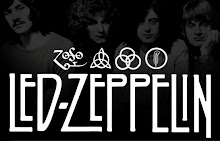Wit as a thought-oriented experience
Wit changes how we cognitively process, appreciate, or "think" about life's events and situations. Jokes are a classic example of how wit changes thinking. In a joke we are guided down one path only to be tracked over onto an alternative path. It is the discrepancy and even trickery of the alterative path (the punch line) that we experience as humorous. Such discrepancy and trickery teaches us to seek alternative explanations for events, which is one process of healthy thinking and creative problem solving. Norman Cousins once called this process trainwrecks of the mind meaning that wit causes us to track over to other thinking patterns and perspectives. Alternative thinking processes provided by wit provide perspective, and can reduce negative thinking common during depression, anxiety, and anger.
Mirth as an emotional experience
Humor changes how we feel emotionally by helping us to experience mirth. While labeling it humor, Mark Twain once described the mirthful experience in the following way:
Humor [Mirth] is the great thing, the saving thing, after all. The minute it crops up, all our hardnesses yield, all our irritations and resentments slip away, and a sunny spirit takes their place.
Mirth can be a powerful experience for eliminating unhealthy feelings. We have all experienced the joy (mirth) of a humorous experience, and know the pleasure of that feeling. As we experience the emotional sensation of mirth, other feelings such as depression, anxiety, and anger are, at least temporarily, eliminated.
That is, one cannot experience mirth and at the same time experience such powerful emotions as irritation, resentment, or upset. In fact, the experience of mirth not only eliminates these emotions, but as Twain so astutely realized, mirth replaces these emotions or gives "mirth" to a 'sunny spirit' such as the lighter experience of joy, pleasure, happiness, etc.
Saturday, December 13, 2008
Subscribe to:
Post Comments (Atom)

No comments:
Post a Comment